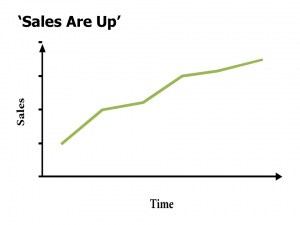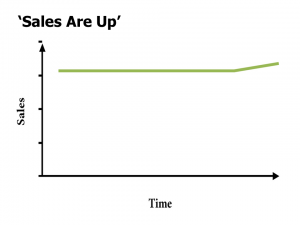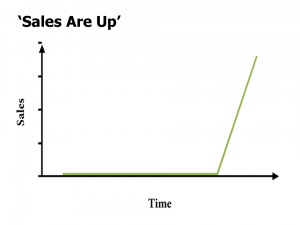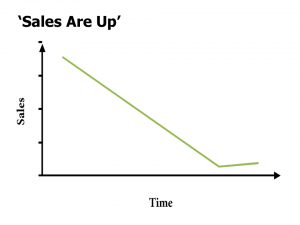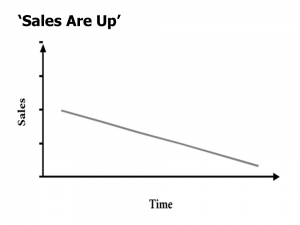In 1981, Microsoft negotiated a deal with Seattle Computer Products to license their operating system, known as 86-DOS. The deal was $10,000 up-front plus $15,000 for each sub-license sold by Microsoft. As such, Microsoft paid a total of $25,000 because they only ever sub-licensed it to one customer.
A little later, they offered an extra $50,000 to buy the product outright. It was agreed. So they paid $75,000 in total.
Seattle Computer Products did not know one crucial fact: the name of the company that Microsoft were going to sub-license to was IBM who launched their brand new PC, revolutionising the market place, using the re-branded MS-DOS as the operating system. In the next 10 years, Microsoft earnt over $200 million from the sales of MS-DOS.
How do you make sure this kind of thing doesn’t happen to you?
You need to get specific.
Let us take another example – you bump into the sales director in the office and they say confidently that sales are up. Great, good news.
But wait, “sales are up” seems pretty unequivocal but what does it actually mean in the real world?
Your natural thought is of a graph that probably looks something like this:
But maybe, when you look at the actual sales figures, the reality is different. Maybe it is more like this:
Yes, sales are up but marginally.
Or maybe they are up a lot, and you’ve got a very different problem, you’ll never be able to deliver.
Or maybe it’s like this, yes, sales are up compared to this time last year, but it’s really not looking good and you’re not going to be around for very long.
Or:
Up compared to last month but it’s a dead cat bounce.
Or maybe, product 1 is doing great, product 2 is ok too. Your product though…not so good.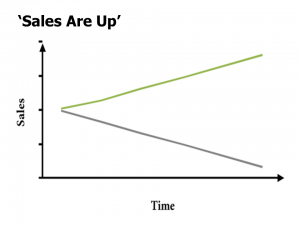
Even, maybe, the sales are actually down, but in the Chinese whispers between the real world events and your conversation, facts got distorted.
So many ways for such a simple communication, said in good faith, to be misleading. Sign your deal on this basis and you have signed a bad deal.
So what is the answer? The answer is to get specific.
- “Which sales specifically are up?”
- “How much are they up by, specifically?”
- “Compared to when, specifically?”
If Seattle Computer Products had asked “Which specific client are you going to licence it to?” they would have got a very different result.
Interestingly, people are loath to lie. Most people do see a moral difference between lying and being economical with the truth. Many people are comfortable holding back certain facts (even if they know this will mislead) but are uncomfortable actively lying.
So get specific and find out those unknown unknowns that could make or break your deal.
